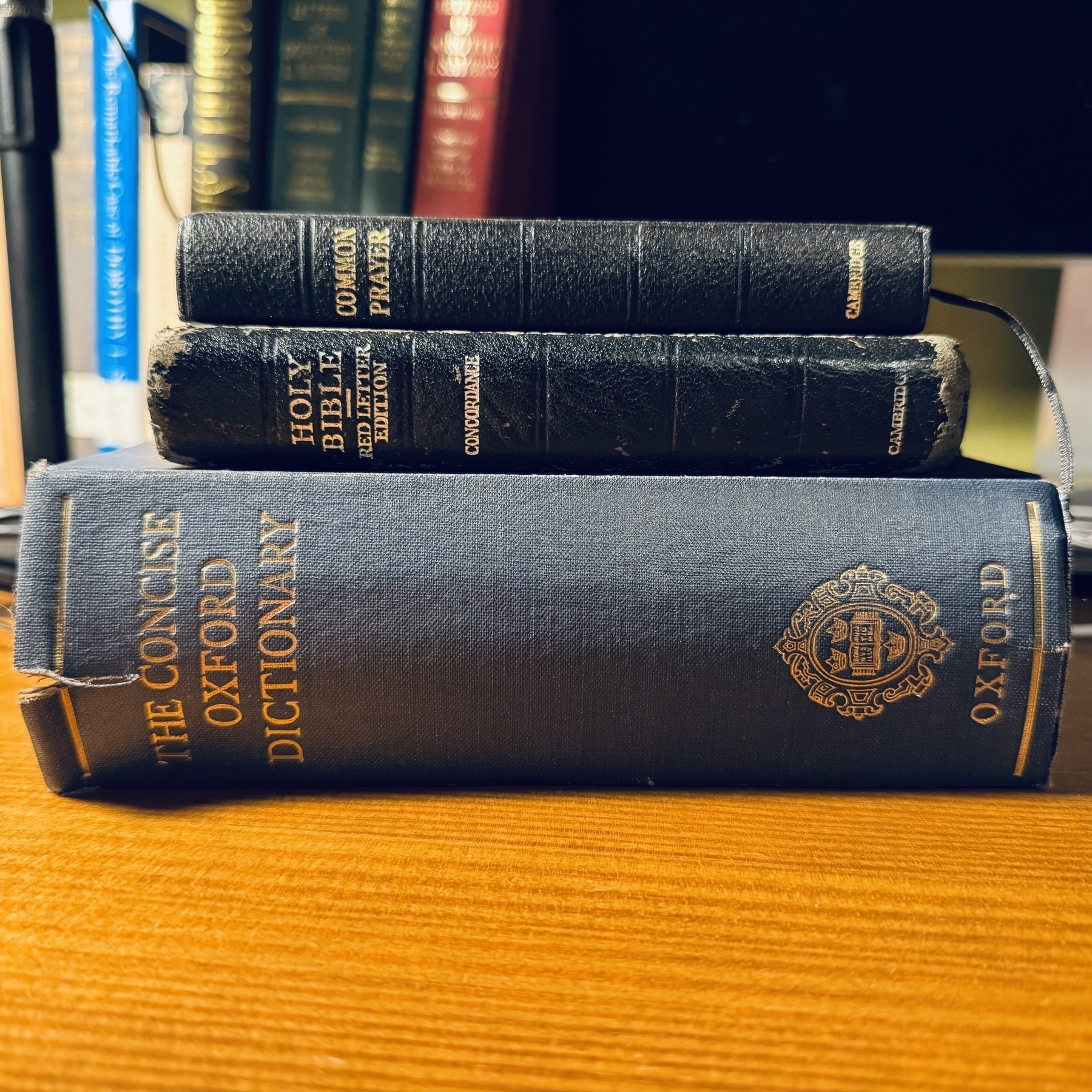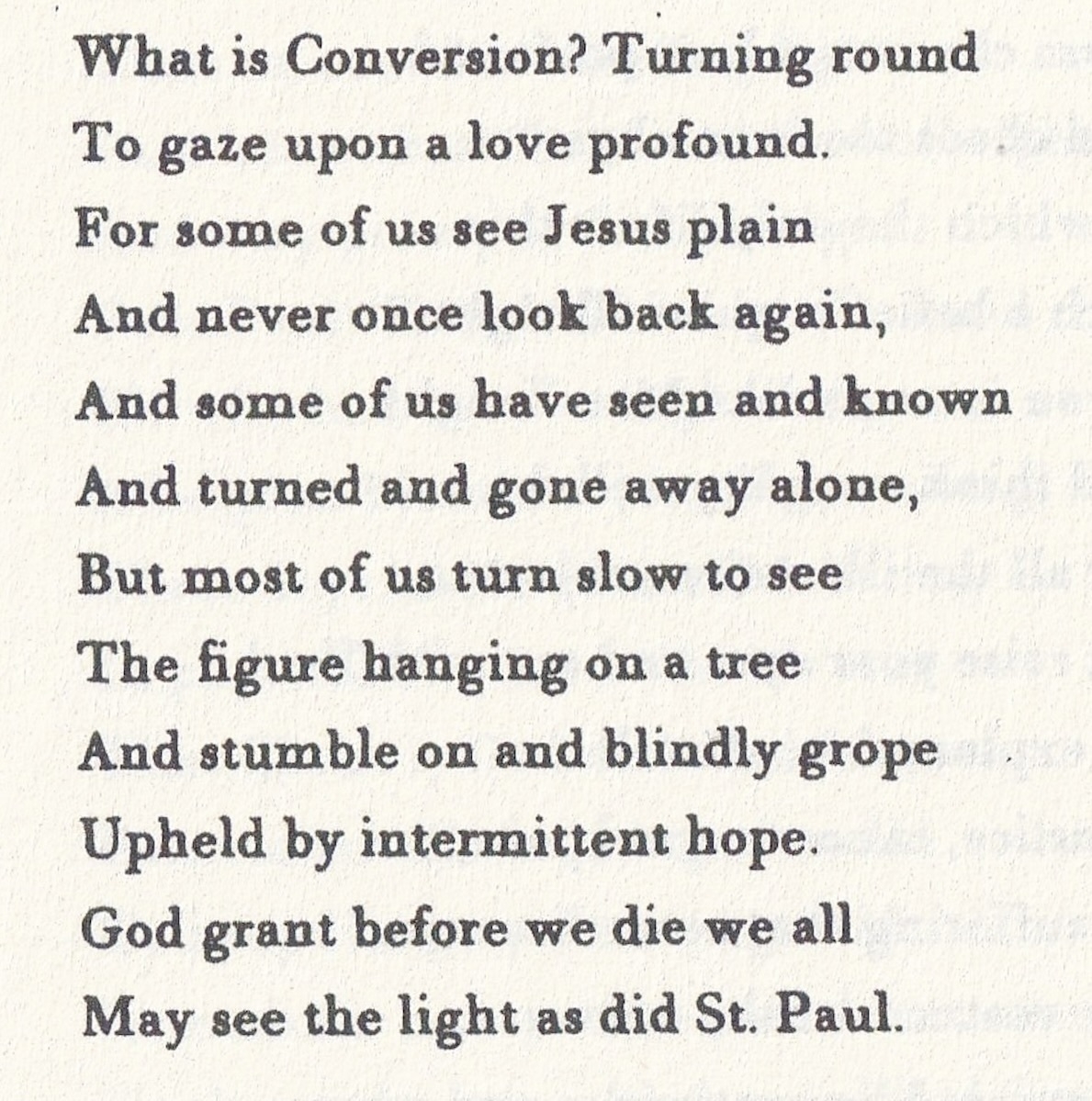“Brilliance in controversy is a corrupting accomplishment. Always to play to win is to take one’s standards from one’s opponent, and local victory comes to displace every other consideration.” – Michael Oakeshott
Iowa morning

“This is the day the Lord has made!” said the very elderly lady in the breakfast room in the Hampton Inn of West Des Moines.
“Let us rejoice and be glad in it!” I replied.
She beamed. See, you can make someone’s day with just a little biblical literacy.
“I see nothing objectionable in the total destruction of the earth, provided it is done inadvertently.” — Evelyn Waugh
Packing for my visit to dear old Wheaton, where I will be digging into the vast Sayers materials in the Wade Center. I am bringing the three books absolutely necessary for studying the writers I work on.
Also, I wrote about Evelyn Waugh’s sanctuary lamp.

Of course it’s a word! It’s what happened to Eustace Scrubb.

The fundamental problem with any intervention that tries to eliminate certain behaviours from an LLM is that it creates incentives for the model to develop workarounds that preserve those behaviours, while evading detection. The machine simply learns to put on a false face. To be clear, these models don't ‘want’ to deceive us. They have no desires or intentions at all. They’re just doing whatever works best to accomplish their assigned tasks. The AI follows the path of least resistance through the “environment” we create for it.
Karen Swallow Prior is working her way through Paradise Lost at her Substack, and graciously asked me if I wanted to write on any one of the twelve books. I chose Book X. Thanks for the invitation, Karen!
Learned this past weekend that Half Price Books pays even less for DVDs than it does for books. I didn’t know that was possible.
John Betjeman, from “The Conversion of St. Paul”


John Ruskin, “Study of Dawn: the first Scarlet on the Clouds”
I responded to a Robin Sloan post by advocating a “distributed localism.”

Rachel Ruysch, “Posy of Flowers, with a Beetle, on a Stone Ledge” (1741)

Keita Morimoto, “Crossroad” (2025), acrylic and oil on linen

Evelyn Waugh, from The Ordeal of Gilbert Pinfold:
His strongest tastes were negative. He abhorred plastics, Picasso, sunbathing, and jazz — everything in fact that had happened in his own lifetime. The tiny kindling of charity which came to him through his religion sufficed only to temper his disgust and change it to boredom. There was a phrase in the thirties: “It is later than you think,” which was designed to cause uneasiness. It was never later than Mr. Pinfold thought.
I wrote about Perfect Days last year, but this reflection by my friend Noah Millman is a deeper dive.
I wrote about the long slow process of returning to vinyl records.